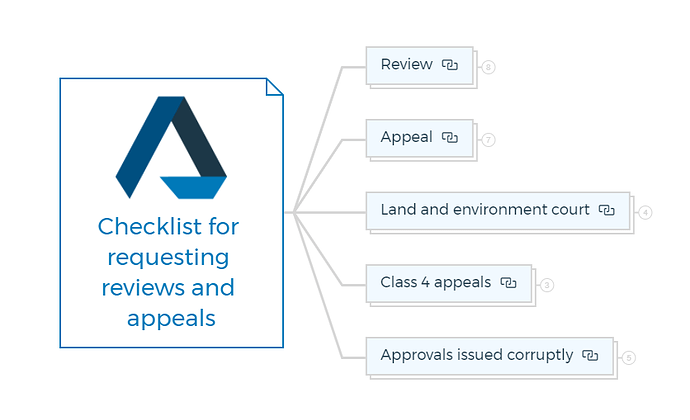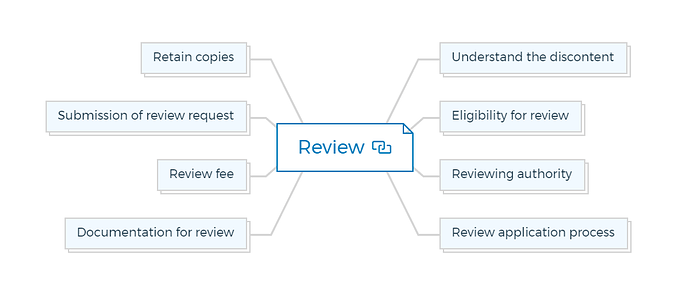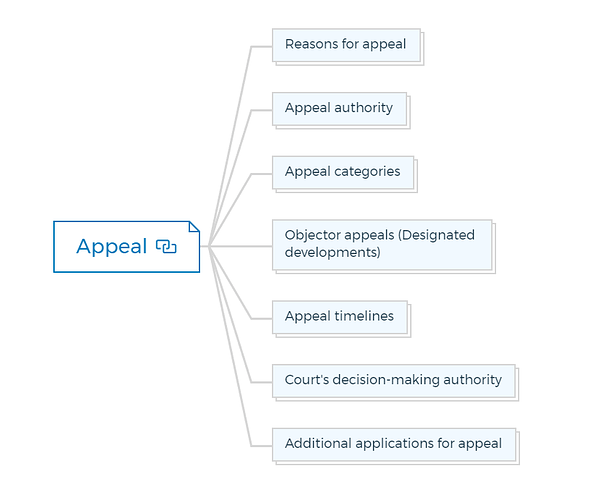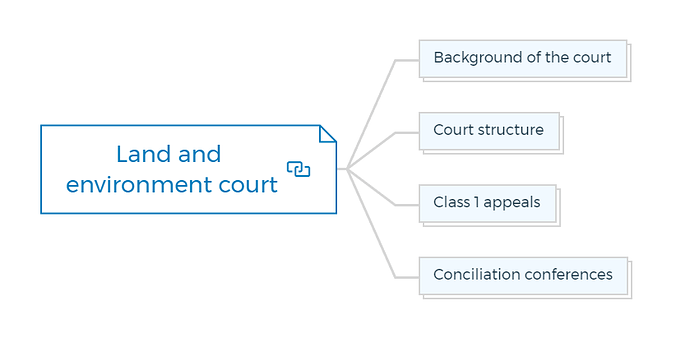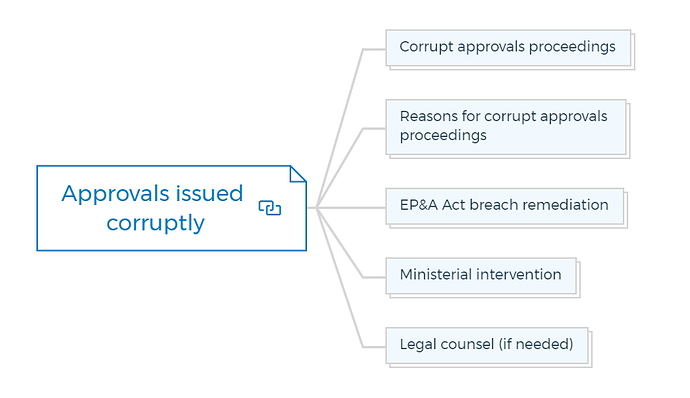Review
-
Understand the discontent
- Determine the specific reason for seeking a review, such as a refusal, unsatisfactory condition of approval, or delay in determination.
-
Eligibility for review
- Check if your development application qualifies for review, noting that certain types like designated development, complying development, or crown development may not be eligible.
-
Reviewing authority
- Identify the appropriate reviewing authority, which may involve the elected Council, planning panel, or another Council delegate not subordinate to the original decision-maker.
-
Review application process
- Research the process for lodging a review application, which typically involves using specific forms or checking an additional box on the standard DA form.
-
Documentation for review
- Prepare a written addendum to your application explaining the reasons for the review and why approval should be granted, along with any supporting documents.
-
Review fee
- Determine the maximum fee for a review, typically outlined in the Regulations, usually not exceeding 50% of the original fee.
-
Submission of review request
- Submit your review request following the designated method, whether in person, by mail, or electronically.
-
Retain copies
- Keep copies of all review-related documents, including the request and supporting materials.

 You are missing out if you haven’t yet subscribed to our YouTube channel.
You are missing out if you haven’t yet subscribed to our YouTube channel.
Appeal
-
Reasons for appeal
- Understand the grounds for appeal, including dissatisfaction with the determination, approval conditions, or prolonged assessment.
-
Appeal authority
- The Land and Environment Court of NSW handles appeals related to Development Applications.
-
Appeal categories
- Appeals can be made for various reasons, including refusal, unfavorable conditions, or delays in assessment.
-
Objector appeals (Designated developments)
- Objectors can appeal decisions for designated developments but only for legal errors.
-
Appeal timelines
- The timeframes for filing appeals, which usually allow applicants six months and objectors 28 days from the date of determination.
-
Court’s decision-making authority
- The Land and Environment Court’s decision in an appeal becomes the final decision regarding the development application.
-
Additional applications for appeal
- Certain other applications, like Construction Certificates or Occupation Certificates, can also be appealed to Court if not issued appropriately.
Land and environment court
-
Background of the court
- Familiarize yourself with the Land and Environment Court’s role, establishment, and jurisdiction, which covers environmental, planning, and land matters.
-
Court structure
- Understand the court’s structure, which includes judges and commissioners handling various types of matters.
-
Class 1 appeals
- For planning matters, class 1 appeals relate mainly to refusals or deemed refusals of Development Applications, following specific procedures in Division 8.3 of the Environmental Planning and Assessment Act.
-
Conciliation conferences
- Know that class 1 appeals may involve conciliation conferences to reach agreements between parties before proceeding to an ultimate hearing.
Class 4 appeals
-
Nature of class 4 appeals
- Class 4 appeals may concern breaches of the Environmental Planning and Assessment Act, allowing individuals to seek orders to remedy or restrain such breaches.
Examples of class 4 appeals
- Understand when class 4 appeals might be relevant, such as challenging zoning changes or development consents tainted by legal errors.
-
Legalistic nature
- Class 4 appeals tend to be more legalistic and may result in cost awards to the successful party.
Approvals issued corruptly
-
Corrupt approvals proceedings
- Know that civil enforcement proceedings can be initiated for “development consent tainted by corruption,” as recommended by the Independent Commission Against Corruption (ICAC).
-
Reasons for corrupt approvals proceedings
- Understand the circumstances under which development consent may be revoked or suspended due to serious corrupt conduct involving the consent authority or its officers.
-
EP&A Act breach remediation
- Proceedings related to corrupt approvals can address violations of the Environmental Planning and Assessment Act.
-
Ministerial intervention
- Be aware that the Minister may suspend a tainted development consent pending proceedings, without prior notice or inquiry.
-
Legal counsel (if needed)
- Consider seeking legal counsel for appeals or proceedings involving corrupt approvals, given their complex nature and potential legal implications.
You are missing out if you haven’t yet subscribed to our YouTube channel.

